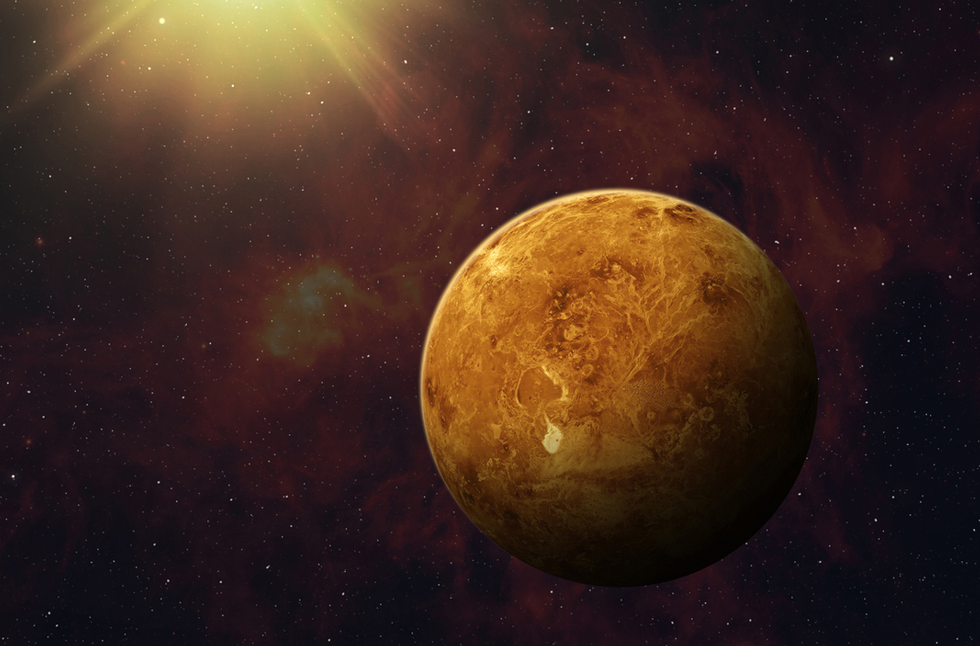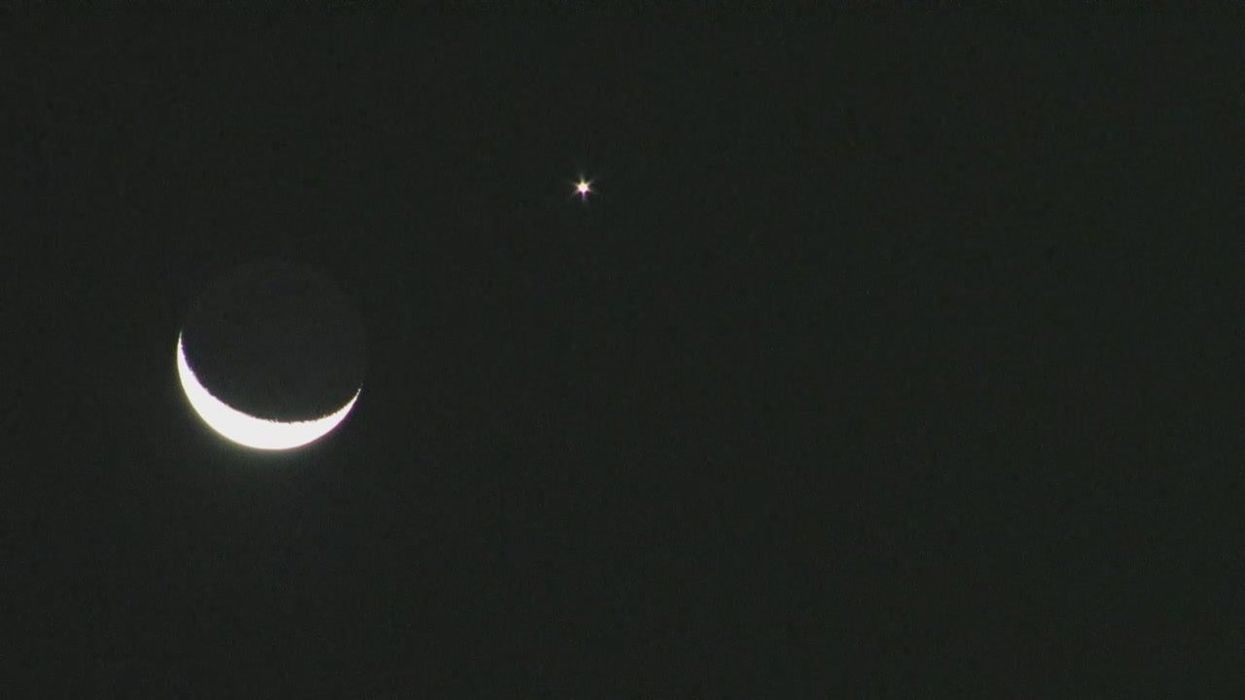Harry Fletcher
Jul 07, 2025
Venus and the crescent Moon
Fox - 5 DC / VideoElephant
We’re closer than ever to understanding one of the mysteries of our solar system, after scientists looked far back into the history of Venus.
It’s believed that the planet – often dubbed Earth’s sister planet given their similar size – once had water on its surface.
The surface of the planet is now covered in vast volcanic plains, and the reasons behind its transformation has baffled and intrigued scientists for years.
However, new research published in Nature could be about to change that.

Expert researchers have put forward the theory that the water on Venus was lost due to HCO+ dissociative recombination.
Essentially, this is a process where HCO+ ions join with electrons to form carbon monoxide and hydrogen, which then dissipate into space.
This could also have been combined with an extreme greenhouse effect, which would have resulted after more and more solar radiation led to increased carbon dioxide, therefore evaporating water on the planet’s surface.
Speaking about HCO+ dissociative recombination, the researchers in the paper said: "This process nearly doubles the Venus H escape rate and, consequently, doubles the amount of present-day volcanic water outgassing and/or impactor infall required to maintain a steady-state atmospheric water abundance.
“These higher loss rates resolve long-standing difficulties in simultaneously explaining the measured abundance and isotope ratio of Venusian water and would enable faster desiccation in the wake of speculative late ocean scenarios.”
Martin van Kranendonk is an astrobiology and geology professor at Curtin University. Speaking to Newsweek, he said: "Venus is not a nice place. Metal space-exploration landers melt in minutes. Mean surface temperature is 867 degrees F. This is because 1) it is closer to the sun than Earth, so warmer, and 2) because it has a super-greenhouse atmosphere composed of 96 percent CO2 (carbon dioxide).
“Life would literally cook on the surface now and be reduced to tar. And, of course, there is no water on Venus, which is host to all life on Earth."
This article was originally published on 9 May 2025
Why not read...
Space discovery shows the pyramids were built using ingenious method
Sign up for our free indy100 weekly newsletter
How to join the indy100's free WhatsApp channel
Have your say in our news democracy. Click the upvote icon at the top of the page to help raise this article through the indy100 rankings
Top 100
The Conversation (0)














